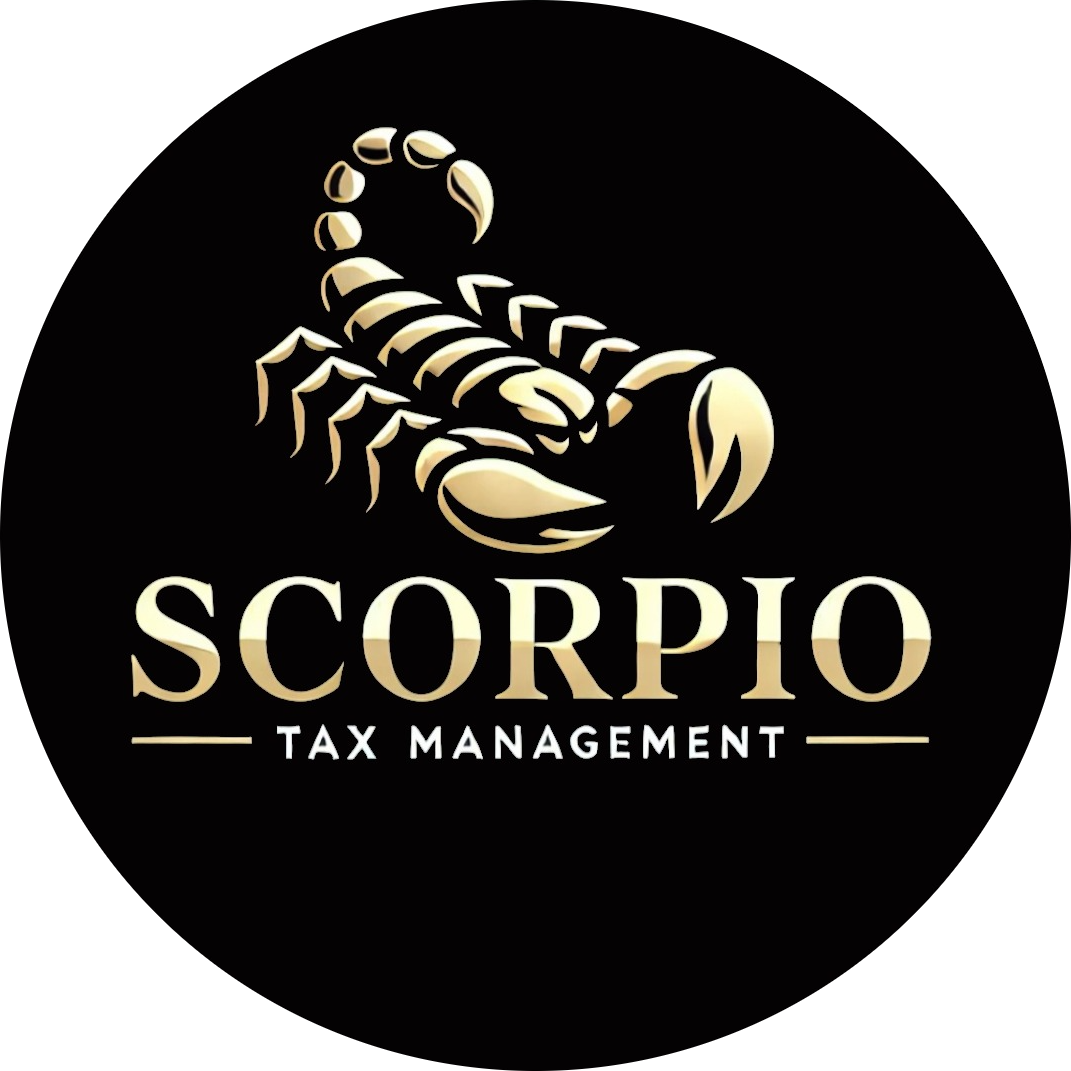Tax Consequences in a Business Acquisition:
A Detailed Guide for S-Corp and LLC Owners
A business acquisition is a pivotal event that can reshape your financial landscape, but it comes with complex tax implications that require careful planning. Whether you’re selling an S-Corporation or LLC, understanding the tax consequences of the transaction is critical to maximizing your after-tax proceeds and ensuring compliance with IRS regulations. The structure of the deal—whether an asset sale or a stock sale—and concepts like inside and outside basis play a significant role in determining the tax outcome.
This comprehensive guide explores the tax consequences of business acquisitions for S-Corps and LLCs, detailing asset sales versus stock/membership interest sales, the role of inside and outside basis, and strategies to minimize tax liabilities. Designed for business owners and entrepreneurs, this resource provides actionable insights to navigate the tax complexities of selling your business.
Write to Tax@S-CorpTax.com, or call (858) 779-4125.
M&A: Tax Impact
verview of Business Acquisitions and Tax Implications
A business acquisition involves the transfer of ownership, either through the sale of assets (e.g., equipment, real estate, goodwill) or the sale of ownership interests (stock for S-Corps or membership interests for LLCs). The tax consequences depend on the deal structure, the entity type (S-Corp or LLC), and the tax basis of the assets and ownership interests involved. For S-Corps and LLCs, which are typically pass-through entities, taxes are generally borne by the owners rather than the entity itself, making the tax treatment highly individualized.
Key tax considerations include:
Capital Gains vs. Ordinary Income: The sale may generate capital gains (taxed at preferential rates) or ordinary income (taxed at higher rates).
Depreciation Recapture: Previously claimed depreciation may be recaptured as ordinary income.
Inside and Outside Basis: These determine the taxable gain for sellers and the tax benefits for buyers.
Asset Sale vs. Stock/Membership Interest Sale: Each structure has distinct tax implications for buyers and sellers.
Below, we break down these elements, focusing on S-Corps and LLCs, and provide strategies to optimize your tax position.
Understanding Inside and Outside Basis
The concepts of inside basis and outside basis are central to determining the tax consequences of a business acquisition for S-Corps and LLCs.
Inside Basis: This is the entity’s tax basis in its assets, calculated as the original cost of the assets minus depreciation or other adjustments. The inside basis affects the taxable gain when assets are sold in an asset sale and the buyer’s ability to claim depreciation deductions post-acquisition.
Outside Basis: This is the owner’s tax basis in their ownership interest (stock for S-Corps or membership interest for LLCs). It’s typically the amount paid for the interest, adjusted for the owner’s share of income, losses, distributions, and other factors. The outside basis determines the taxable gain when selling stock or membership interests.
Example: Suppose an LLC owner has an outside basis of $100,000 in their membership interest, and the LLC’s inside basis in its assets is $80,000. If the owner sells their interest for $150,000, the taxable gain is $50,000 ($150,000 - $100,000), based on the outside basis. In an asset sale, the LLC’s gain depends on the inside basis of the assets sold.
For S-Corps and LLCs, the interplay between inside and outside basis can create tax complexities, especially when the bases differ significantly. Enrolled Agents can help align these bases to minimize taxes.
Asset Sale vs. Stock/Membership Interest Sale: Tax Implications
The structure of the acquisition—asset sale or stock/membership interest sale—has profound tax consequences for both the seller and the buyer. Below, we compare the two structures for S-Corps and LLCs.
1. Asset Sale
In an asset sale, the business sells its individual assets (e.g., equipment, real estate, inventory, goodwill) to the buyer. The tax consequences depend on the type of assets sold and their inside basis.
Tax Implications for the Seller (S-Corp or LLC)
Capital Gains: Assets like real estate, equipment, or goodwill generate capital gains based on the difference between the sale price and the asset’s inside basis. Long-term capital gains (for assets held over one year) are taxed at 0%, 15%, or 20% (2025 rates, depending on income).
Depreciation Recapture: For depreciable assets (e.g., machinery), previously claimed depreciation is recaptured as ordinary income under Section 1245 (taxed at rates up to 37%) or Section 1250 (25% for real estate depreciation).
Ordinary Income: Assets like inventory or accounts receivable are taxed as ordinary income, not capital gains.
Allocation of Sale Price: The sale price must be allocated among the assets based on their fair market value, reported on IRS Form 8594. This allocation affects the tax treatment, as different assets have different tax rates.
Pass-Through Taxation: For S-Corps and LLCs, the gain or income from the asset sale flows through to the owners’ personal tax returns, reported on Schedule K-1.
Double Taxation Risk (S-Corps): If an S-Corp distributes the sale proceeds to shareholders, it’s generally tax-free to the extent of the shareholder’s outside basis. However, distributions exceeding the basis are taxed as capital gains.
Example: An LLC sells equipment (inside basis $20,000, sale price $50,000) and goodwill (inside basis $0, sale price $100,000). The equipment sale generates a $30,000 gain, with $20,000 of depreciation recapture taxed as ordinary income and $10,000 as a capital gain. The goodwill sale generates a $100,000 long-term capital gain. The total gain of $130,000 flows through to the LLC owners’ tax returns.
Tax Implications for the Buyer
Step-Up in Basis: The buyer receives a stepped-up basis in the acquired assets equal to the purchase price, allowing higher depreciation or amortization deductions in the future. For example, goodwill can be amortized over 15 years under Section 197.
Tax Benefits: The step-up in basis provides immediate tax benefits, making asset sales attractive to buyers.
Pros and Cons
Seller: Asset sales often result in higher taxes due to depreciation recapture and ordinary income. However, they may be preferred if the seller wants to retain certain assets or liabilities.
Buyer: Buyers prefer asset sales for the step-up in basis and the ability to cherry-pick assets without assuming unwanted liabilities.
2. Stock Sale (S-Corp) or Membership Interest Sale (LLC)
In a stock sale (S-Corp) or membership interest sale (LLC), the owner sells their ownership interest to the buyer, transferring control of the entire entity, including its assets and liabilities.
Tax Implications for the Seller
Capital Gains: The seller’s taxable gain is based on the difference between the sale price and their outside basis in the stock or membership interest. If held for over one year, the gain qualifies for long-term capital gains rates (0%, 15%, or 20%).
No Depreciation Recapture: Since the entity’s assets are not sold, there’s no depreciation recapture or ordinary income at the entity level.
Simpler Tax Reporting: The seller reports the gain on their personal tax return (Form 1040, Schedule D), with no need to allocate the sale price among assets.
Net Investment Income Tax (NIIT): High-income sellers (MAGI above $200,000 single/$250,000 married filing jointly in 2025) may owe a 3.8% NIIT on the capital gain.
Example: An S-Corp shareholder with an outside basis of $200,000 sells their stock for $500,000. The $300,000 gain is taxed as a long-term capital gain, assuming the stock was held for over a year.
Tax Implications for the Buyer
No Step-Up in Basis: The buyer inherits the entity’s existing inside basis in its assets, limiting future depreciation or amortization deductions. This makes stock/membership interest sales less tax-advantageous for buyers.
Carryover Liabilities: The buyer assumes all liabilities, including potential tax or legal issues, which increases risk.
Pros and Cons
Seller: Stock/membership interest sales are tax-favorable for sellers, as they typically generate only capital gains and avoid depreciation recapture.
Buyer: Buyers often resist stock/membership interest sales due to the lack of a step-up in basis and the assumption of liabilities.
Special Considerations for LLCs
For LLCs taxed as partnerships, a membership interest sale is generally treated as a capital gain based on the outside basis. However, if the LLC holds “hot assets” (e.g., inventory, accounts receivable, or depreciable property), a portion of the gain may be taxed as ordinary income under Section 751 to account for the seller’s share of unrealized ordinary income. This adds complexity, requiring careful tax planning.
Additional Tax Considerations
State and Local Taxes: States may impose capital gains taxes, transfer taxes, or other levies on asset or ownership interest sales. For example, California taxes capital gains at ordinary income rates (up to 13.3% in 2025). Multi-state businesses must address tax obligations in each jurisdiction.
Goodwill and Intangible Assets: In asset sales, goodwill is a significant component, taxed as a capital gain for sellers and amortizable over 15 years for buyers. Proper valuation is critical to avoid IRS disputes.
Installment Sales: Sellers can spread capital gains over multiple years by structuring the deal as an installment sale, potentially lowering their tax bracket. However, depreciation recapture and ordinary income must be reported in the year of sale.
Section 338(h)(10) Election (S-Corps): For S-Corp stock sales, buyers and sellers can jointly elect under Section 338(h)(10) to treat the transaction as an asset sale for tax purposes. This provides the buyer with a step-up in basis while the seller reports the gain as if the assets were sold, potentially including depreciation recapture. This election requires mutual agreement and careful tax planning.
Strategies to Minimize Tax Liabilities
To optimize the tax outcome of a business acquisition, consider these strategies:
Choose the Right Deal Structure: Sellers prefer stock/membership interest sales for lower taxes, while buyers favor asset sales for the step-up in basis. Negotiate a structure that balances both parties’ interests, possibly using a Section 338(h)(10) election for S-Corps.
Optimize Asset Allocation: In asset sales, allocate the sale price to assets with favorable tax treatment (e.g., goodwill for capital gains) rather than inventory or receivables (ordinary income). An Enrolled Agent can ensure compliance with IRS allocation rules.
Adjust Basis Before the Sale: For LLCs, owners may increase their outside basis by retaining earnings or making capital contributions before the sale, reducing the taxable gain.
Use Installment Sales: Spread capital gains over multiple years to manage tax brackets and avoid the NIIT.
Offset Gains with Losses: Sell underperforming assets or investments to generate capital losses that offset gains from the acquisition.
Plan for State Taxes: Work with a tax advisor to address state-specific tax obligations, especially for businesses operating in high-tax states like California.
How an Enrolled Agent Can Help with Business Acquisitions
Navigating the tax complexities of a business acquisition requires expertise and precision. Enrolled Agents (EAs) are federally licensed tax professionals authorized to represent taxpayers before the IRS in all matters, including acquisitions. Here’s how [Your Firm Name]’s Enrolled Agents can assist:
1. Strategic Tax Planning
Our EAs analyze your business structure, assets, and financial goals to recommend the most tax-efficient deal structure. We evaluate asset vs. stock/membership interest sales and explore options like Section 338(h)(10) elections to balance tax benefits for both parties.
2. Basis Calculations and Adjustments
We calculate inside and outside basis accurately, identifying opportunities to increase basis before the sale to reduce taxable gains. For LLCs, we address Section 751 hot asset rules to minimize ordinary income.
3. Asset Allocation and Valuation
We work with appraisers to value assets and allocate the sale price on Form 8594, ensuring compliance and optimizing tax outcomes. Our expertise minimizes the risk of IRS disputes over allocations.
4. Depreciation Recapture and Ordinary Income Analysis
We calculate depreciation recapture and ordinary income components, providing strategies to mitigate their impact, such as timing the sale or offsetting income with losses.
5. IRS Representation
If the IRS audits the acquisition or questions the reported gains, our EAs provide expert representation, handling all communications and documentation to resolve issues efficiently.
6. State and Multi-State Compliance
We ensure compliance with federal and state tax requirements, addressing complexities for businesses operating in multiple jurisdictions.
Why Choose SCORPIO TAX MANAGEMENT for Business Acquisition Tax Guidance?
Enrolled Agent Expertise: Our EAs are federally licensed and trained in the latest tax laws, ensuring precise and compliant strategies.
Tailored Solutions: We customize our approach to your business’s unique needs, whether you’re selling assets or ownership interests.
Proactive Planning: We anticipate tax challenges and recommend strategies to minimize liabilities before the sale closes.
Nationwide Representation: Our EAs can represent clients in all 50 states, providing seamless support for multi-state transactions.
Don’t attempt to handle your tax situation all by yourself… work with professionals!
The trouble and money a good tax strategist can save you often pays off right away.
Scorpio Tax Management can help you. There’s no cost to have a first conversation.
We are Enrolled Agents, licensed directly by the IRS to advise and represent taxpayers.
Scorpio Tax Management can assist you in nearly all U.S. states... just reach out to us!
San Francisco, with Marin County, Silicon Valley, and the whole East Bay
Paso Robles, with Atascadero and all other parts of the Central Coast
Santa Barbara, with Buellton, Santa Ynez, Montecito, Ventura, Oxnard
Los Angeles, Malibu, Santa Monica, Beverly Hills, Hollywood, South Bay
Orange County, with Anaheim, Huntington Beach, Newport Beach, Irvine
San Diego, with Del Mar, La Jolla, Rancho Santa Fe, Encinitas, Oceanside
Palm Springs, with Palm Desert and all other parts of the Coachella Valley
Las Vegas, with Henderson and all other regions of Nevada
Phoenix, Tuscon and all of Arizona
Dallas, Austin, San Antonio, Houston, and all other cities in Texas
Miami, Orlando, Tampa Bay, Palm Beach, Jacksonville, Sarasota… all of Florida
As Enrolled Agents, we are licensed to help taxpayers in all 50 states
📞 (858) 779-4125, or Schedule a Call Here
📧 tax@S-CorpTax.com










